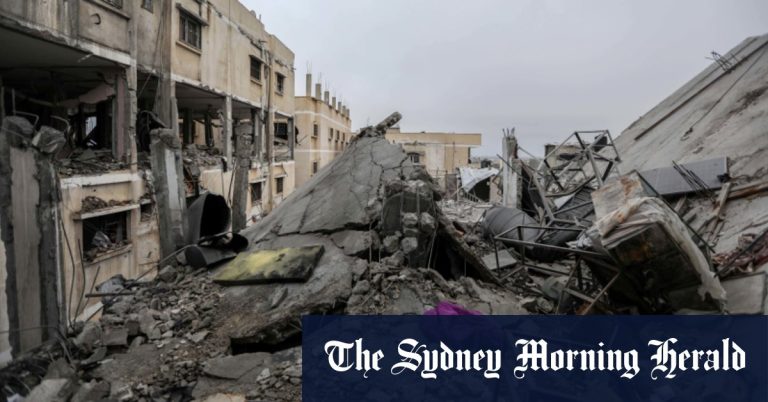US President Joe Biden appears to have surprised the combatants in the war in Gaza by announcing the possibility of implementing a temporary ceasefire five days before the start of the holy month of Ramadan on the evening of March 9.
The president told reporters in New York that he hopes a ceasefire will be possible by next Monday. “My national security advisor told me we were close. It was close. He said, ‘We are not finished yet.’” “Ramadan was approaching, and there was an agreement among the Israelis that they would not participate in any activities during Ramadan either, in order to give us time to get all the hostages out.”

A camp housing Palestinians who were displaced by the Israeli attack in Rafah. credit: AP
Israeli and Hamas officials have poured water on the ceasefire. While we can only speculate about the reason behind Biden's hopeful enthusiasm, he clearly has inside information on the negotiations taking place behind the scenes and is clearly more concerned about the possibility of a ceasefire than either of the warring sides.
A senior Egyptian official reportedly claimed that a six-week ceasefire would go into effect, and that Hamas would agree to release up to 40 hostages – most of them civilian women, at least two children, and elderly and sick captives. The proposal was drafted after mediated negotiations in Paris several days ago. The framework was presented by Israel, the United States, Qatar and Egypt in the French capital. It was reported that two delegations from Israel and Hamas are in the Qatari capital, Doha, for further negotiations.
Since the Hamas attack on October 7, stopping the bloodshed in Gaza has become diplomatically difficult. According to Israeli figures, about 1,200 people were killed in the attack and 250 others were captured. To date, Israeli retaliation and invasion have killed nearly 30,000 people by some estimates, displaced more than 85% of the population of 2.3 million, and left Palestinian infrastructure in ruins. About 100 hostages were released in exchange for the release of 240 Palestinians in Israeli prisons last November, but the truce collapsed after a week. Progress on the second deal has proven elusive.
Just as it is in Israeli Prime Minister Benjamin Netanyahu's interest to prolong the war and postpone the day of reckoning for his failure to prevent the October attack, Biden has a pressing personal political need to help resolve the conflict.
download
The president must reduce anger within his Democratic Party over his position on Gaza to ensure maximum support against Donald Trump in the November presidential election. the AnnounceAlthough Biden won, he faced a popular campaign in the presidential primary in Michigan, a state with an estimated 300,000 Arab-American and Muslim voters, North America correspondent Farah Tomazin reported. Preliminary results showed that about 16% voted “non-committed” in protest against his support for Israel, which is one of his main responsibilities to the more liberal Democrats. The large number of uncommitted votes is a warning sign in a blue-collar state where Trump beat Hillary Clinton by just 0.2 percent in 2016.
Less narrowly, Biden is offering Israel the opportunity to normalize diplomatic relations with Saudi Arabia. Biden explained in New York that he no longer insists on “an immediate two-state solution, but rather on a process to reach a two-state solution.” A ceasefire is the first step in that process. For Netanyahu, making the neighborhood less hostile would not only be a historic achievement, but a far better legacy than the bloodshed in Gaza.
When Ramadan begins, the war in Gaza has been going on for more than five months. Gaza was described as the largest open-air concentration camp in the world. Now it's our biggest killing field. More futile bloodshed is the only guarantee the longer this continues. It is now time for all parties to come together and ensure a ceasefire.
The Opinion Newsletter is a weekly collection of views that will challenge, support and inform yours. Register here.

